What to do about a dysfunctional family? And more importantly, how to prevent your familial mess from spilling onto your relationship with your partner? These questions are all too familiar for anyone who’s grown up around the undercurrent of tension, uneasiness and constant fear of even the most routine situations turning volatile.
Samaira, a freelance photographer, felt the weight of these questions acutely as she hung up yet another distressing call with her mother. Sensing something was amiss, her partner asked her if everything was okay. She brushed aside all her anxious feelings with, “Yeah, everything is fine.” But the conversation kept playing in her mind on a loop, she wondered if she should confide in her partner about it.
Would he understand? Will it turn into a classic case of family causing problems in relationships? Will it hamper his relationship with her family? Would he use this knowledge against her? Would he be okay being in a relationship with someone with a dysfunctional family? Is it okay to tell your boyfriend about your family problems? Samaira’s conundrum isn’t hers alone.
Anyone with dysfunctional family dynamics struggles with similar thoughts and it can be years before they can let their partners in on this debilitating aspect of their existence. To help you figure out the right way forward, emotional wellness and mindfulness coach Pooja Priyamvada (certified in Psychological and Mental Health First Aid from Johns Hopkins Bloomberg School of Public Health and the University of Sydney), who specializes in counseling for extramarital affairs, breakups, separation, grief and loss, to name a few, writes about how to talk to your partner about your dysfunctional family.
What Is Dysfunctional Family Relationships?
Table of Contents
Before we get into what to do about a dysfunctional family when you’re in a relationship, it’s vital to define what is dysfunctional family relationships. Often people assume that children being raised by single parents or children with divorced parents qualify as dysfunctional families. However, this couldn’t be farther from the truth.
Such misconceptions only embolden societal stereotypes, forcing people to stay in unhappy relationships for the sake of the children, which can be more damaging to everyone involved in the long run. In fact, such a family can then go on to become a classic example of dysfunctional family relationships.
A dysfunctional family is one where there is abuse – be it emotional, physical or financial. Even if the abuse is not directed toward the children, growing up in an environment where yelling, shouting matches, physical violence, verbal abuse, gaslighting and emotional manipulation or financial exploitation are prevalent amounts to secondary abuse and leads to exposure to complex trauma that can be psychologically scarring.
Likewise, issues like alcoholism and infidelity render a family’s dynamic dysfunctional, deeply impacting everyone involved and leading to unhealthy patterns like codependency in relationships, insecure attachment patterns and more.
Talking To Your Partner About Your Dysfunctional Family
Now, coming to the questions of what to do about a dysfunctional family when you’re in a relationship. Is family background important in a relationship? Is it okay to tell your boyfriend about your family problems or share your issues with your girlfriend/spouse/long-term partner? These questions can often be confusing for anyone who’s grown up in dysfunctional family dynamics.
When you’re trying to figure out whether or not to confide in your partner about the “messy” details of your family dynamics, you must not lose sight of the fact that trust is paramount in any relationship. To build trust, you need transparency. This transparency comes from knowing each other thoroughly.
The answer to “is it okay to tell your boyfriend about your family problems” or “should you talk to your girlfriend/partner/spouse about your family dynamics” also depends on the nature of your relationship. If your relationship is still in its nascent stages, you probably don’t need to add the pressure of dating someone with a dysfunctional family to your relationship dynamics.

Besides, when you’re still getting to know each other in the dating stage or early relationship days, you may have apprehensions about how they’d react, which are justified. On the other hand, often in couples who are in serious, long-term relationships discussing these family issues can lead to better emotional intimacy. That kind of vulnerability can bring you closer to your partner than ever before, and strengthen your relationship even more.
What to do about a dysfunctional family – To share or not to share?
Generally speaking, it is advisable to share your past traumas and difficult experiences in an intimate relationship. It helps build trust and emotional intimacy in the relationship. Besides, it can help your partner understand your triggers and reactions better. For instance, if you get anxious by sudden, loud noises or somebody raising their voice around you, your partner will be able to better understand those reactions if they know that you grew up in a home where there was a lot of yelling and violence.
At the same time, this decision also depends on what kind of person your partner is. If they’re mature and sensitive, they will respond with compassion and empathy. However, if they lack the maturity to deal with this knowledge, it can get thrown in your face in moments of conflict.
When your spouse talks bad about your family or your partner disrespects your family, it can adversely impact your own relationship with them. For example, I had a client who told her partner about the history of mental illness in her family. Then, every time they had an argument or fight, her partner would blatantly use that against her to invalidate her emotions, saying things like “You keep making mountains out of molehills, you’re crazy just like the rest of your family.”
The trouble also is that people who grow up in dysfunctional families end up developing insecure attachment styles and attracting partners who exhibit the same patterns they’ve grown up seeing. Besides, it becomes harder for them to trust people easily. If they do take a leap of faith and confide in their partner, who then ends up using this knowledge against them, it can further fuel their insecurities and trust issues.
Related Reading: Child Abuse By Parents? Here Is What You Need To Do
This is not to say that telling your partner about your dysfunctional family will always backfire. It can also bring a couple closer and eliminate existing issues between them. For example, I dealt with a couple in therapy – an Indian man married to a foreign national. When they were dating, the man would drink socially and his partner too would enjoy an occasional drink.
However, after they got married, she saw that they had a bar at home and became hysterical about it. She demanded it be removed, saying she didn’t want alcohol in her living space. This was extremely confusing for the man because no one in the family had a drinking problem and his occasional indulgence in a drink or two didn’t bother her before. He was clueless as to what brought on such a strong reaction toward something so routine as having a personal bar at home.
It was only much later that she confided in him that her mother was an alcoholic and it caused her a lot of trauma growing up. Her mother would go missing for days or she’d have to get her home from the police station and so on. Of course, once he knew where her reactions were coming from, this man was able to understand them and they were able to deal with the issue better.
So whether or not you should talk to your partner about your family issues depends on the nature of your relationship as well. If you’re in an unhealthy relationship, perhaps it’s best to tread carefully. But if your partner is compassionate and empathetic, bringing this kind of vulnerability into your dynamic can transform the quality of your connection.
Related Reading: 8 Relationship Problems You Can Face If You Had Toxic Parents
How To Talk To Your Partner About Your Dysfunctional Family?
So, you’re in a good place with your partner and feel that they deserve to know about your family dynamics. Or perhaps you’re tired of carrying the weight of your dysfunctional family relationships all alone and want to share with your partner. The question is how.
Being raised by toxic parents can deeply impact your psyche. The reality of your family issues can stir up a lot of uncomfortable emotions – from pain and anger to shame and embarrassment. Sifting through these and opening up isn’t always the easiest journey. Here are some ways people in intimate, serious relationships can open up to their significant others about their family issues:
1. Use a nudge from your partner to start a conversation
If you’re in a long-term relationship and your partner is perceptive, they may begin to notice that certain aspects of your family dynamics make you uneasy. When they ask you about it, open up. For instance, a woman I counseled had grown up around an alcoholic, abusive father and carried a lot of trauma from her childhood.
Her partner noticed that she didn’t talk about her father a lot and even if his mention came up casually in a conversation, she would become withdrawn and quiet. He asked her if there were some issues between her and her father, and it became easier for her to share her story. So, if your partner asks, use that nudge to start a conversation about your family issues.
2. Use a relatable incident to talk about your family dynamics
If you have been meaning to tell your partner about your dysfunctional family but haven’t found the right words or don’t know how to broach the topic, use a current situation to bring up the past. For example, if you’re watching a movie where there is domestic violence and you’ve seen that in your home growing up, you can use that correlation to tell your partner about it.
You could say something like “I find it hard to watch domestic violence even on screen because I’ve seen it so closely in my real life” and take it from there. Or share whatever emotions that particular scene brings up for you.
3. Test the waters with hypotheticals
In case you’re just not sure how your partner would react to your dysfunctional family relationships, you can test the waters by bringing up a hypothetical situation. Say you’ve seen your parents’ marriage suffer on account of infidelity, you could tell your partner, “A friend of mine/a coworker told me about how much cheating in her parents’ marriage has affected her. She’s still trying to heal from the toll that one incident took on their lives as a family.”
See how your partner reacts. If they’re compassionate and kind in their reaction, you can tell them about your own ordeals as well. But if they’re judgmental, it’s best to leave it alone.
Related Reading: Trauma Bonding: Why People Stay In Abusive Relationships
4. Share in a safe space
When you feel that you lack the ability to talk about your dysfunctional family to your partner on your own, it’s best to do it in a safe space. You can do it in the presence of a friend who knows and understands what you’ve been through. Or you could consider going into couples therapy and talking to your partner in the presence of a therapist.

It is essential that abuse is called abuse, no matter where it is coming from. Besides, it would help convey to your partner what your boundaries are, what is acceptable to you and what’s not.
While it is not unheard of for couples to be together for decades without sharing their traumas, it can cause problems between the two partners to escalate. A person who has suffered trauma during their childhood can project it onto situations in their own relationships. If you haven’t shared those traumatic experiences with your partner, they may not understand why you’re reacting to a situation the way you are.

Your reactions may also be disproportionate to the issue at hand, which can leave your partner feeling clueless and confused. Over time, this can lead to a lot of misunderstandings in your relationship. So as far as possible, I’d recommend that you take your partner into confidence and talk to them about your dysfunctional family. Of course, at the right time, in the right manner and environment.
Your contribution does not constitute a charitable donation. It will allow Bonobology to continue bringing you new and up-to-date information in our pursuit of helping anyone in the world to learn how to do anything.



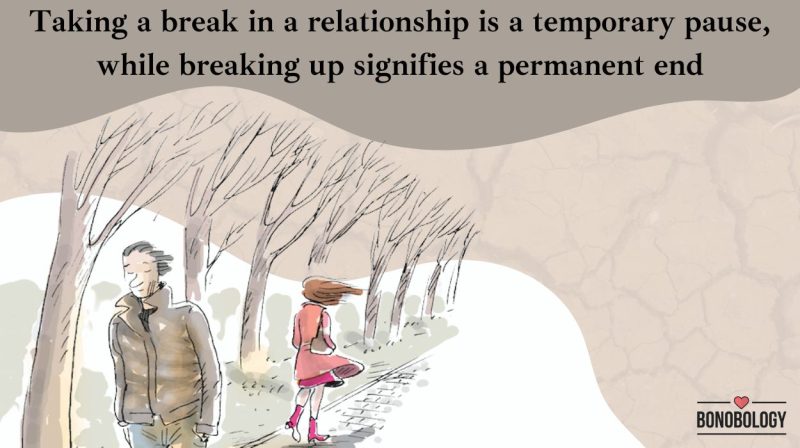


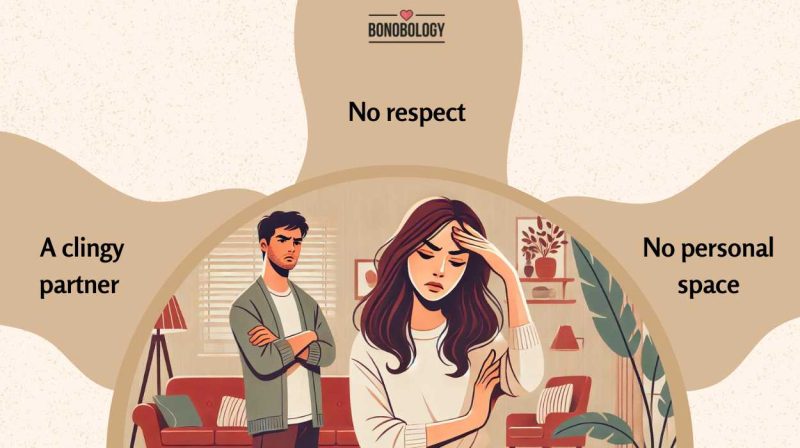





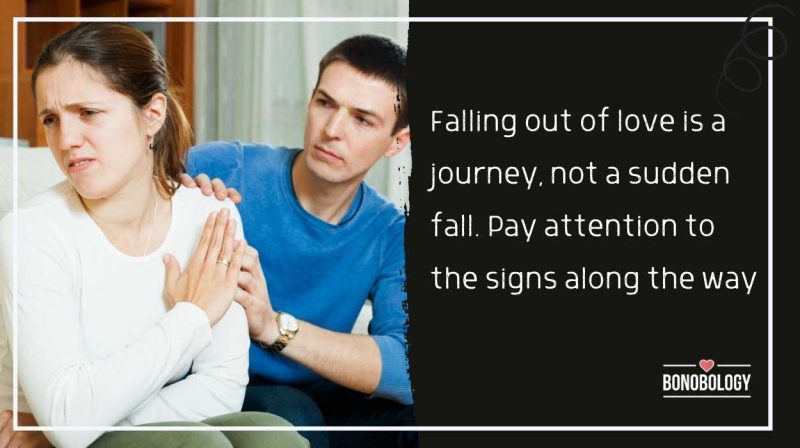
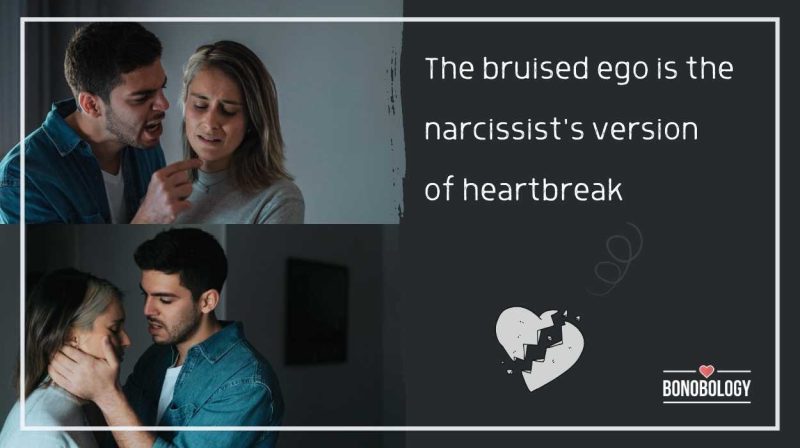
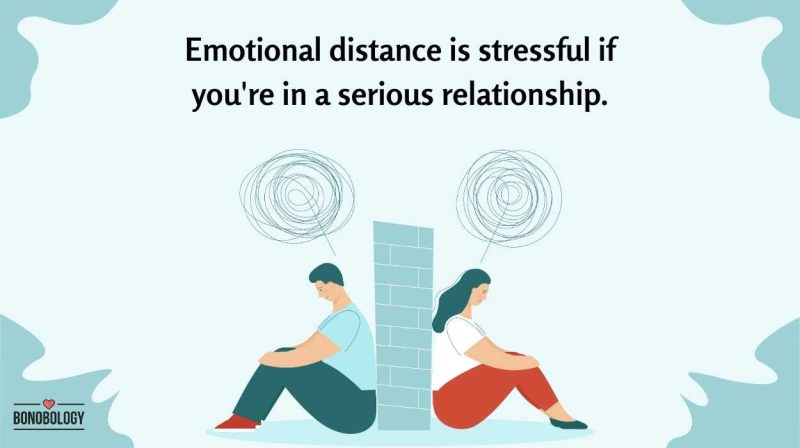
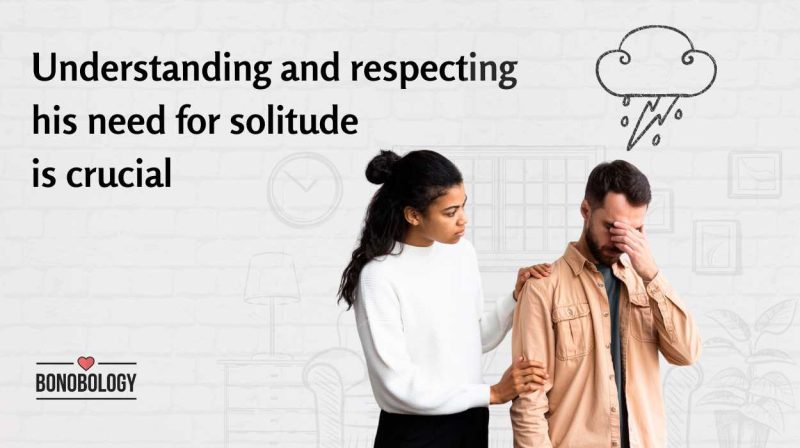
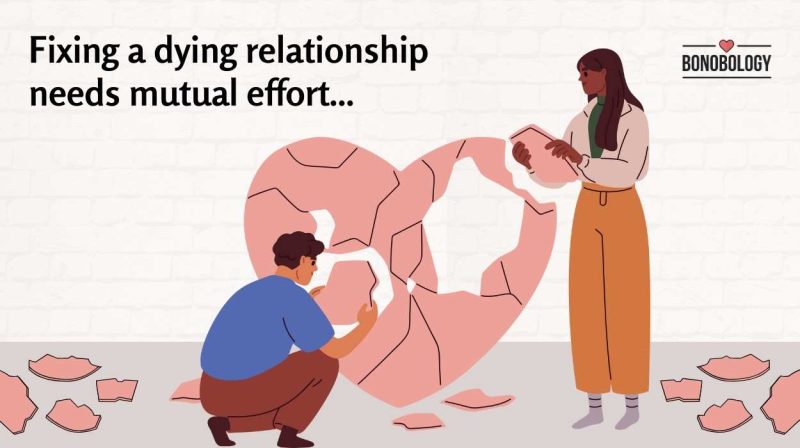
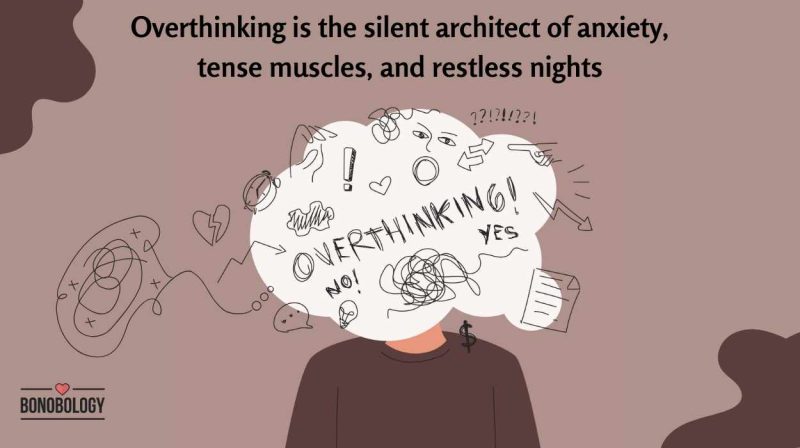


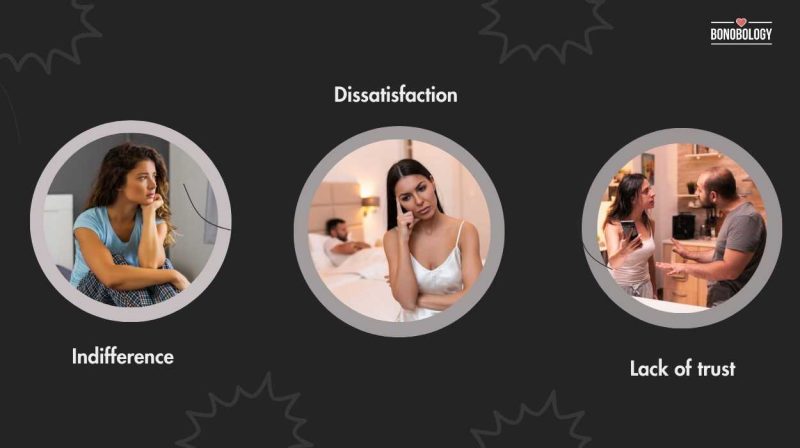
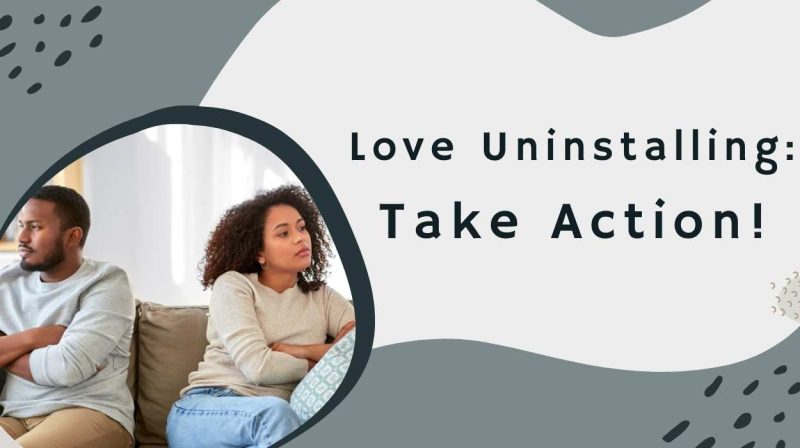

never had a safe space to share things , this feels like a safe space to share